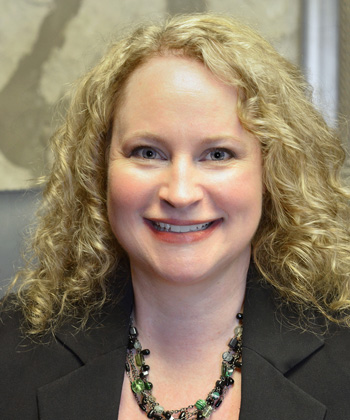The 65 and older population is growing rapidly and is estimated to make up 30% of the nation’s population by 2030 (U.S. Census Bureau, 2020). In 2012, the Institute of Medicine projected that at least 20% of older adults would experience some mental health concerns (Eden et al., 2012), though they could not have predicted the global COVID-19 pandemic and the added present-day mental health strain this would cause on all ages, especially older adults, many of whom were exponentially impacted due to the increased risk for social isolation and more severe health impacts of the virus (Krendl & Perry, 2020; Lebrasseur, et al., 2021).
Geriatric mental health workforce training
Among the American Psychological Association Center for Workforce Studies survey’s 4,109 doctoral-level respondents, only 1.2% identified as geropsychology specialists compared to 15.4% as child and adolescent psychology specialists (Moye et al., 2019). However, more than 37% of the respondents said they frequently or very frequently worked with older adults.
Many psychologists currently working with older adults have not had focused geropsychology training opportunities. Unlike coursework on child and developmental psychology, coursework on aging is often optional in graduate training. In North America, only 14 accredited doctoral psychology programs have a geropsychology track or emphasis (http://copgtp.org/members/member-list/). This is unfortunate, as psychology students and practicing psychologists may be less inclined to work with older adults as a result of limited exposure and experience.
To address potential geriatric mental health workforce gaps, the field needs a two-fold approach: 1) to support those who specialize in (or plan to specialize in) geropsychology, and 2) to support psychologists who encounter older adults in their clinical practice but who have not received advanced training in working with older adult clients. Regardless of the category in which you fall, knowing and meeting foundational knowledge and functional competencies regarding our increasingly diverse aging populations and treatment settings are crucial to ensure high quality care to older adults.
Pikes Peak Model for geropsychology training
Aspirational competencies for professional geropsychology practice were first outlined at the 2006 National Conference on Training in Professional Geropsychology, which created the Pikes Peak Model for Geropsychology Training (Knight et al., 2009) and the Council of Professional Geropsychology Training Programs (CoPGTP). CoPGTP offers recommendations for competent delivery of psychological services to older adults (Hinrichsen et al., 2018)and provides a competency evaluation tool for trainees and clinicians. The assessment tool can be used to evaluate one’s progress in developing geropsychology competencies and define ongoing learning goals and training needs.
What are some core domains of knowledge in working with older adults?
- Impact of attitudes about older adults and aging
- Adult development and aging
- Clinical practice
- Assessment
- Interventions, consultation, and other service provision
As three psychologists who are passionate about geropsychology and training others to work with older adults in long-term care and medical settings, we frequently run into colleagues and trainees who desire to be more comfortable and prepared to work with older clients. To this end, we wrote a review on the foundational knowledge related to interventions, consultation, and providing other services to older adults (Lind et al., 2021). This review is part of a special issue in Clinical Psychology: Science and Practice on “Foundational Knowledge Competencies in Geropsychology.” In addition to our article on intervention, consultation, and other service provision, this special issue will include foundational knowledge competencies in: attitudes about older adults and aging, general knowledge of adult development, aging, and the older population, knowledge of the foundations of clinical practice with older adults, and knowledge of the foundations of assessment of older adults (Hinrichsen et al., 2018).
What makes treating older adults different?
Many treatment modalities and interventions have been found to have similar efficacies with younger and older adults. However, unique aspects related to the aging process and the sociocultural and historical context may impact treatment planning with older clients. For example, although an 88-year-old client may benefit from behavioral activation as much as an 18-year-old, going to the gym may be more meaningful and accessible to one more than the other.
In addition to general and specialized evidenced-based psychological interventions with older adults, we review adaptations based on aging-related changes and diverse care settings, health and medical factors that impact service delivery, characteristics of various clinical settings, and interdisciplinary collaboration. We also discuss business considerations such as billing and reimbursement, as well as ethical and legal considerations including informed consent, confidentiality, substitute or end-of-life decision-making and potential conflicts of interest, diminished capacities, and elder abuse and neglect.
Ultimately, we hope our review will encourage more psychologists and trainees to work with older adults and serve as a reference for knowledge and functional competencies needed to provide competent intervention, consultation, and other service provisions to older adult clients and members of their care teams.
Reference Article
Lind, L.M., Poon, C.Y.M., & Birdsall, J.A. (2021). Foundational knowledge competencies in professional geropsychology: Interventions, consultation, and other service provision. Clinical Psychology: Science and Practice. Advance online publication. https://doi.org/10.1037/cps0000050
Discussion Questions
- Do you feel comfortable, competent, and confident working with older adults? Why or why not?
- What steps can supervisors, training programs, and professional organizations take to ensure there are sufficient numbers of competent care providers to meet the mental health needs of older adults?
- What is one thing you will do to combat ageism and promote equity in access to mental health care across the lifespan?
About the Authors
 Lisa M. Lind, PhD (she/her) is a licensed psychologist who provides psychological services to residents in LTC settings. She currently serves on the Chief Clinical Leadership Team of Deer Oaks, where she provides national oversight in decisions related to clinical service delivery, quality assurance initiatives, and compliance. She currently serves as the President of Psychologists in Long-Term Care and also serves on AMDA’s Society for Post-Acute Care and Long-Term Care (PALTC)’s Behavioral Health Council.
Lisa M. Lind, PhD (she/her) is a licensed psychologist who provides psychological services to residents in LTC settings. She currently serves on the Chief Clinical Leadership Team of Deer Oaks, where she provides national oversight in decisions related to clinical service delivery, quality assurance initiatives, and compliance. She currently serves as the President of Psychologists in Long-Term Care and also serves on AMDA’s Society for Post-Acute Care and Long-Term Care (PALTC)’s Behavioral Health Council.
 Cecilia Poon, PhD (she/her) is a licensed board certified geropsychologist and health psychology internship training director at Nebraska Medicine, and adjunct assistant professor in Psychiatry at the University of Nebraska Medical Center. She serves on several committees of the Society of Clinical Geropsychology (APA Division 12, Section 2), Psychologists in Long-Term Care, and the Nebraska Mental Health and Aging Coalition. Follow her on Twitter @CeciliaPoonPhD
Cecilia Poon, PhD (she/her) is a licensed board certified geropsychologist and health psychology internship training director at Nebraska Medicine, and adjunct assistant professor in Psychiatry at the University of Nebraska Medical Center. She serves on several committees of the Society of Clinical Geropsychology (APA Division 12, Section 2), Psychologists in Long-Term Care, and the Nebraska Mental Health and Aging Coalition. Follow her on Twitter @CeciliaPoonPhD
 Jennifer A. Birdsall, PhD (she/her) is a licensed clinical psychologist and the Chief Clinical Officer at CHE Behavioral Health Services. She has over 15 years of experience providing intervention, assessment, and consultation services in long term care facilities. She has served on several committees of Psychologists in Long-term Care, Society of Clinical Geropsychology (APA Division 12, Section 2), the California Association of Long-Term Care Medicine (CALTCM), and the CA Partnership to Improve Dementia Care.
Jennifer A. Birdsall, PhD (she/her) is a licensed clinical psychologist and the Chief Clinical Officer at CHE Behavioral Health Services. She has over 15 years of experience providing intervention, assessment, and consultation services in long term care facilities. She has served on several committees of Psychologists in Long-term Care, Society of Clinical Geropsychology (APA Division 12, Section 2), the California Association of Long-Term Care Medicine (CALTCM), and the CA Partnership to Improve Dementia Care.
References Cited
American Psychological Association. (2014). Guidelines for psychological practice with older adults.http://www.apa.org/pubs/journals/features/older-adults.pdf
Eden, J., Maslow, K., Le, M., & Blazer, D. Committee on the Mental Health Workforce for Geriatric Populations, Board on Health Care Services, & Institute of Medicine (Eds.). (2012). The mental health and substance use workforce for older adults: In whose hands? National Academies Press (US).
Hinrichsen, G.A., Emery-Tiburcio, E.E., Gooblar, J., Molinari, V.A. (2018). Building foundational knowledge competencies in professional geropsychology: Council of Professional Geropsychology Training Programs (CoPGTP) recommendations. Clinical Psychology Science & Practice, e12236, 1-8
Knight, B. G., Karel, M. J., Hinrichsen, G. A., Qualls, S. H., & Duffy, M. (2009). Pikes Peak model for training in professional geropsychology. American Psychologist, 64, 205–214. https://doi.org/10.1037/a0015059
Krendl, A. C., & Perry, B. L. (2020). The impact of sheltering in place during the COVID-19 pandemic on older adults’ social and mental well-being. Journals of Gerontology: Psychological Sciences, 76, 53-58.
Lebrasseur, A., Fortin-Bedard, N., Lettre, J., Raymond, E., Bussieres, E., Lapierre, N., Faieta, J., Vincent, C., Duchesne, L., Ouellet, M., Gagnon, E., Tourigny, A., Lamontagne, M., & Routhier, F. (2021). Impact of the COVID-19 pandemic on older adults: Rapid review. Journal of Medical Internet Research: Aging, 4. https://aging.jmir.org/2021/2/e26474.
Moye, J., Karel, M. J., Stamm, K. E., Qualls, S. H., Segal, D. L., Tazeau, Y. N., & DiGilio, D. A. (2019). Workforce analysis of psychological practice with older adults: Growing crisis requires urgent action. Training and Education in Professional Psychology, 13(1), 46–55. https://doi.org/10.1037/tep0000206
U.S. Census Bureau. (2020). 65 and older population grows rapidly as baby boomers age.https://www.census.gov/newsroom/press-releases/2020/65-older-population-grows.html
Interested in submitting a blog post?
Link HERE to download the SCP Blog Submission Form
